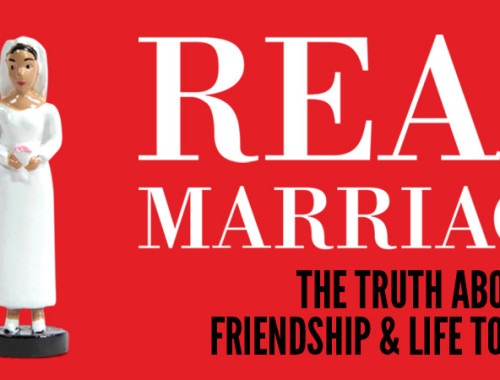If you’re thinking this chapter is going to be chock full to the brim with fat-shaming, ableism, and classism– you’d be right!
First off, there’s a lot in this chapter that’s just common sense– especially since it focuses on eating a healthy diet and exercising. From my short life, it seems like most of what we hear from medical professionals is that eating your fruits and vegetables and exercising seems to be the bulk of their advice.
However, that’s not where Helen goes with it, since her definition of “eating right” is only attainable by rich people. When someone tells me that I can’t cook with canned or frozen food and must only buy organic, and then links this to whether or not my husband will love me, the only thing I can think is well, shit. I’m living on a solidly middle-class budget, and I can’t even afford to buy only fresh (and organic!) food. Later, she says we have to drink only “pure water” and says to buy bottled if we have to, which… this.
Then she moves into getting a good night’s rest, and this is where she gets ableist: some people have insomnia, including me. Getting a good night’s rest just isn’t possible for me most of the time. She also tells us to go to bed before 10p and to sleep on a “good, firm mattress.” I spent most of my life thinking I was a horribly lazy person because I was a night owl– for me, I get my best rest when I go to sleep around midnight and wake up around 9a. That’s just how I function the best. If I try to go to sleep earlier, I have nightmares, I wake up three or four times, and I get up in the morning feeling groggy and confused. It took me until I was 24 to figure out that I just didn’t need to force myself into a sleeping pattern that didn’t fit me. Same thing goes for “firm mattress.” I wake up in pain if I have to sleep on a firm mattress and sleeping on one for more than 3 days… nope. Just nope.
Here we hit “Exercise Regularly” and even more ableism. Because not everyone can exercise, and a lot of people have things like fibromyalgia and rheumatoid arthritis, even when they’re incredibly young. And yes, people like this hear “exercise!” all of the time, but it’s especially problematic given the context of Helen’s book: you must do exactly what she says or your husband won’t love you.
But, it was the “Control Weight” section that really got me:
If you have a chunky figure you cannot appear dainty, feminine, or girlish, even with the help of soft, flowing, feminine clothes. No matter what you do to disguise it, you cannot hide excess weight. When you get down to normal size, you will look many times more attractive in your clothes. You will appear younger and more feminine, and will acquire a new vitality to your face and features. Just from the standpoint of appearance, it is well worth it to lose excess weight.
Excuse me while I go beat my head into a wall.
At 5’8” and 150 pounds, and with a BMI of 23, that puts me on the upper end of “normal weight.” I’m skinny, slender, whatever. However, I could never in a million years be described as “dainty.” Words like “healthy” and “big boned” and “curvy” — all code words for fat— have been applied to me my entire life. I desperately wanted to hear willowy, delicate, dainty and that desire to be treated as thin hasn’t really gone away, even though I actually am thin. This is just crazy-making, because it really seems that even thin women like me will never be good enough– not even stick-thin fashion models are thin enough.
But, I think the worst part of this chapter is under the heading “Have a Healthy Mental Attitude.” It’s not uncommon to hear people talk about “positive” and “negative” emotions, even outside of religious contexts. The Power of Positive Thinking –itself a Christian book and even quoted by Helen– did very well outside of the Christian market, and so has The Secret. Helen is talking about the same thing here, and she lists what she considers “destructive mental attitudes”: worry, fear, anxiety, pessimism, hate, resentment, impatience, envy, anger. Which, ok, I can buy into the notion that your mental health can affect your physical health, but I am a little tired of lists like these.
Hate? God hates plenty of things (primarily injustice, greed, oppression), so how exactly is this a “bad” thing to feel?
Anger? Pretty sure Jesus got angry, too, so . . .
Impatience? Yup, I’m positive God is described as impatient.
For me, personally, recognizing that there’s no reason to feel guilt over my anxiety, or that I can embrace anger and even hate has probably been some of the most liberating realizations I’ve had over the past few years. It’s not wrong to be angry. It’s not destructive. I don’t have to feel ashamed because of my anxiety. The problem isn’t having the emotion at all. There are things worth being angry over. There are some things that I should not have patience with. There are some things that need to be hated.
But, to Helen, if I’m not constantly smiling, radiant, cheerful, enthusiastic, and optimistic, then I’m not being feminine. I’m failing God and my husband and society when I don’t smile every single second of every single day.



